This is Post 3 of the 3 Post Series.
Protein How Much Do I Need? Studies show we need to increase our protein intake for Optimal Health. Today is Post 3 in this series, where we cover How to Calculate What You Need.
To help make the information practical, I’ve created 3 pdfs for you.
1. The Equation for you to make your Calculations.
2. PDF illustrating How to Eyeball the amount of protein.
3. A completed chart for you where I’ve already done the math!
In POST 1 and Post 2, we covered a variety of research that emphasized the value of including high-quality protein in our diet so we understand WHY it is so important to our Body.
There are many important reasons why incorporating high-quality meat is a good idea. All of them help to achieve the 1 GOAL of Optimizing Our Body.
Complete Protein supports the 1 Focus of Providing the Cell with what it needs.
Plus, there is ample proof that including more and more high-quality complete Protein in our meals is a Good Self Care Micro Decision and is especially important as we age.
THe simple self care lifestyle
Simplify
This post came about because a subscriber, also an integrative practitioner, emailed me a great question.
Q: “mo, I was at your online Protein seminar last Summer and was wondering if you could do a post with the instructions to calculate how much protein is needed daily. And maybe include some of the studies you shared about the positive impact eating more can have on:
- bones
- mood
- sleep
- hair loss
- health-span
- immune system
- better cancer outcomes and
- aging
I am asking for myself and my clients, so references and the equation that you shared would be helpful.” Tina D. P.S. I greatly appreciate your website’s ability to translate all articles.
A: I am so glad to hear the incorporation of the translator is helpful to you and your clients. Your question is a great one, and it is a huge topic. To keep the post a reasonable length, I’ve pulled together a few studies highlighting how increased protein is beneficial to all our systems.
I am leaning heavily on one study in this post and video because it may make it easier to pass on to your clients.
To help put the information into focused action, I created 3 pdfs. Plus, I logged timestamps, so it is easier to find the info in the video when you are wanting to quickly reference a specific topic with a client.
Video Time Stamps ⏰
0:00 – 02:28 Research Shows We do NOT eat enough protein for Optimal Health
02:29- 03:15 DEBUNKED: It causes Inflammation, Bone loss, Renal stress, Aging, Cardiac Disease, and Cancer.
03:16 – 03:40 The research.
03:41 – 04:09 Will increasing High-Quality Complete Protein (Meat) Hurt my Bones? Osteoporosis? (It actually forestalls bone loss!)
04:10 – 04:29 Will it hurt Renal Function? (Kidneys?)
04:30 – 05:36 Cause Inflammation? Cardiovascular issues? Aging problems?
05:37 – 05:48 Type and Quality of your Meat, Fish, and Eggs Matters.
05:49 – 06:31 What about Cancer? Colon? Breast? NO LINK!
06:32 – 07:16 What about Weight and Metabolism?
07:17 – 09:43 Where is the Equation we are using from? What is the equation? Where can I download the charts?
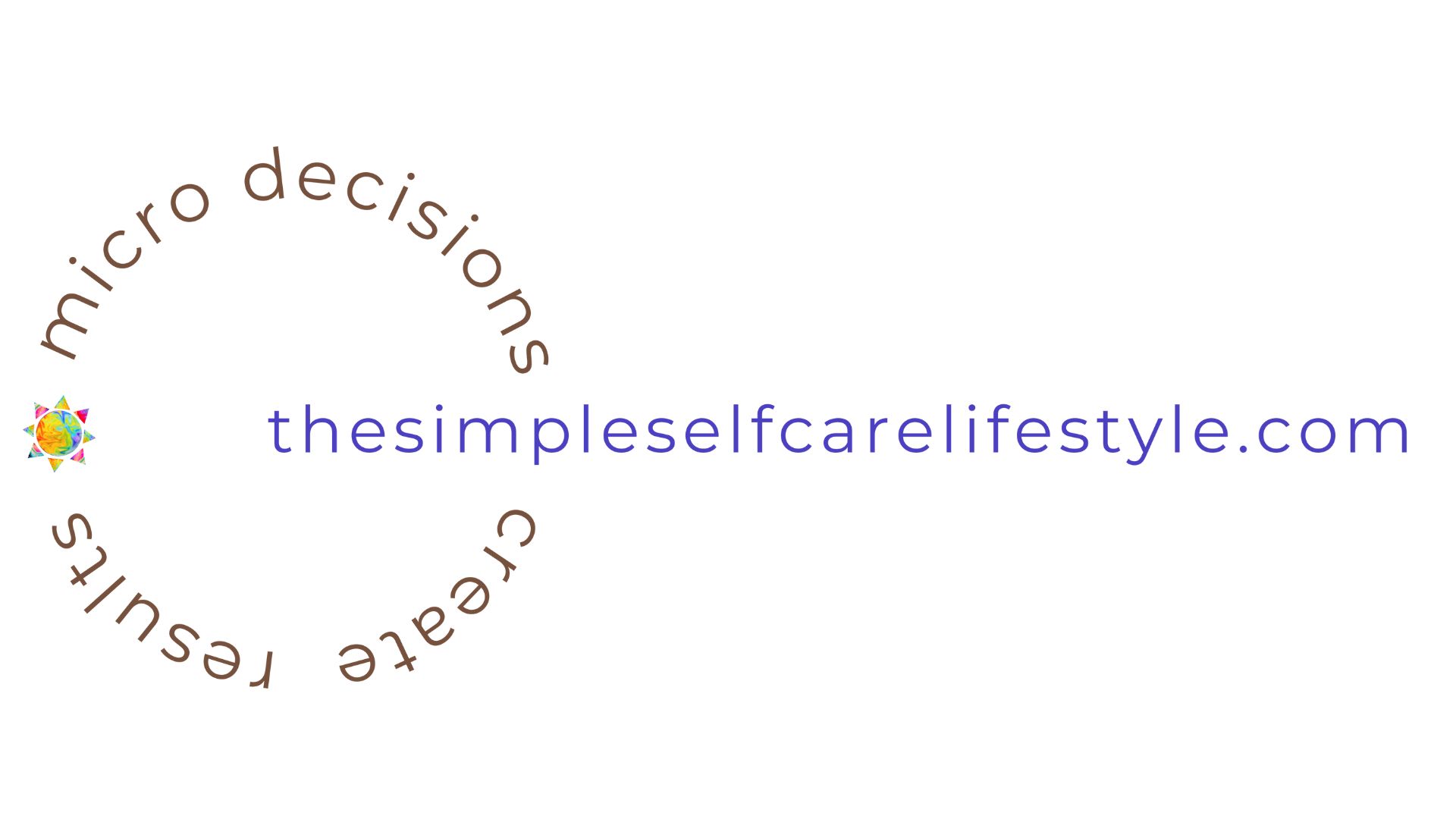
Today’s Simple Self Care Tip & Tool:
Tip
Self Care TIP: Calculate Your Protein needs so you can SLOWLY work up to incorporating the amount in your personal meal plan 3 pdfs to help calculate optimal daily Protein.
Tool
Self Care TOOL: Downloadable pdfs that help you calculate, locate, and eyeball your Protein. Located further down.
The Science
Before Incorporating Complete Protein Back into My Diet, I Wanted to See the Science Confirm Higher Protein Would Not:
- Promote bone loss
- Increase inflammation
- Cause colorectal or breast cancer
- Decrease my metabolism
- Promote Cardiac disease
- Strain Kidneys…

Updated Research Suggests We Need More Protein for Optimal Health.
Updated Research Shows Protein Actually Supports All the Above & Suggests We Need to Eat More for Optimal Health.
Even with all the mounting research over the past two decades showing the immense benefits of consuming a higher-protein diet, we have not changed our intake. (1)
The research shows the amount of Protein consumption has remained unchanged. (2)
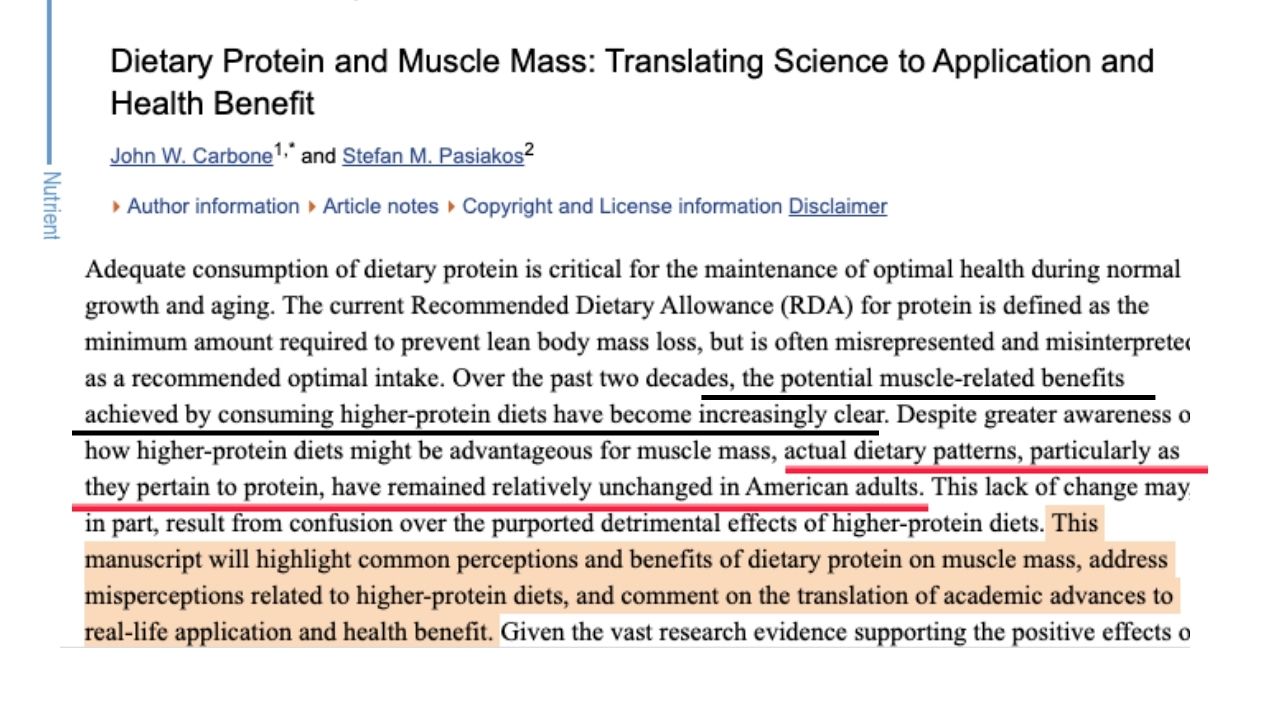
A bunch of other unhealthy, processed foods that actually damage the very systems we worry increased high-quality Protein may hurt make it into our diets.
As a matter of fact, year after year, it is the processed ‘foods’ that make up a larger part of our diet and without much thought about damage.
In retrospect, I find this so fascinating about myself. Starting in my late teens through early 30s I did not eat meat or eggs. I was so worried about the negative health impact. Yet the only worry I had around all the sweets, simple carbs (Bagels, Breads, ‘Healthy’ Breakfast Muffins, pasta…), and junk food was calories. 🤦🏻♀️
I shared in the video Protein Part 2 how I seemed to be able to justify my consumption of Little Debbies, Pringles Chips, Donuts, and Snicker bars. Yet, I was afraid of increasing my consumption of complete proteins, especially meat. Many, many of my clients had the same worries.

Debunking Messaging that Inflammation, Bone loss, Renal stress, Aging, Cardiac Disease, and Cancer are promoted.
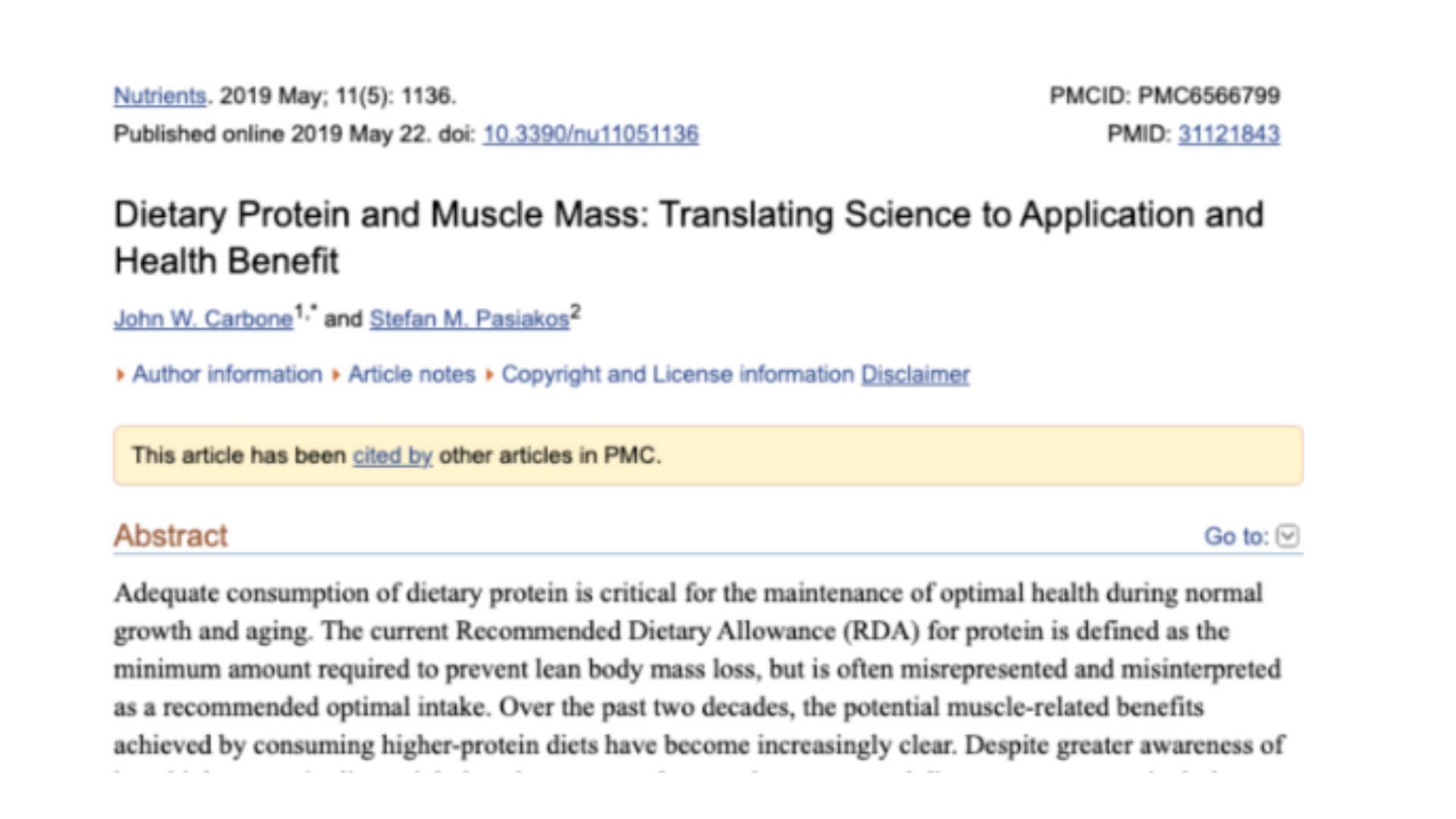
The study I am leaning heavily on is titled: Dietary Protein and Muscle Mass- Translating Science to Application and Health Benefit.
I’m choosing to highlight this study because it is a good overview of the:
- many positive reasons to eat more
- it debunks multiple negative stances on its consumption
- provides us with the Equation to calculate the base AMDR (how much we would minimally benefit from).
“…the potential benefits of higher-protein intakes extend across the lifespan.” (1)
This study is also where the Equation came from that helps us calculate the daily amount we should aim for.
Confidence that our food choices benefit us is absolutely essential.
This research is also very helpful for practitioners and their clients when it comes to peace of mind.
To build even more confidence, I placed multiple linked references and resources at the end for you to read or share.
They provide a way to delve deeper into the subject of protein.
Confusing Advice when it comes to Protein
When perusing the internet, it is easy to find the opposite being touted. Having the research handy allows you to take a moment to reflect, go past the headlines and look at the studies that explain what our body does with protein and why our body needs it.
PROTEIN: Why? Kind?
Often the headlines and articles are about low-quality products. So always check out the ‘type’ and ‘quality’ of mostly meat the study is blaming poor health on.
Also important is to note if the study is current.
Again I chose today’s study because it points out that many studies have updates – changing the position previously held.
Let’s get into that now.

Broad Claims of High Meat Consumption Having a Negative Impact are Unfounded.
“The broad claims of high Protein having a negative impact on our body are unfounded”. (1)
Let’s walk through a few pieces of research, debunking the worries most of us have, especially when it comes to meat and eggs.
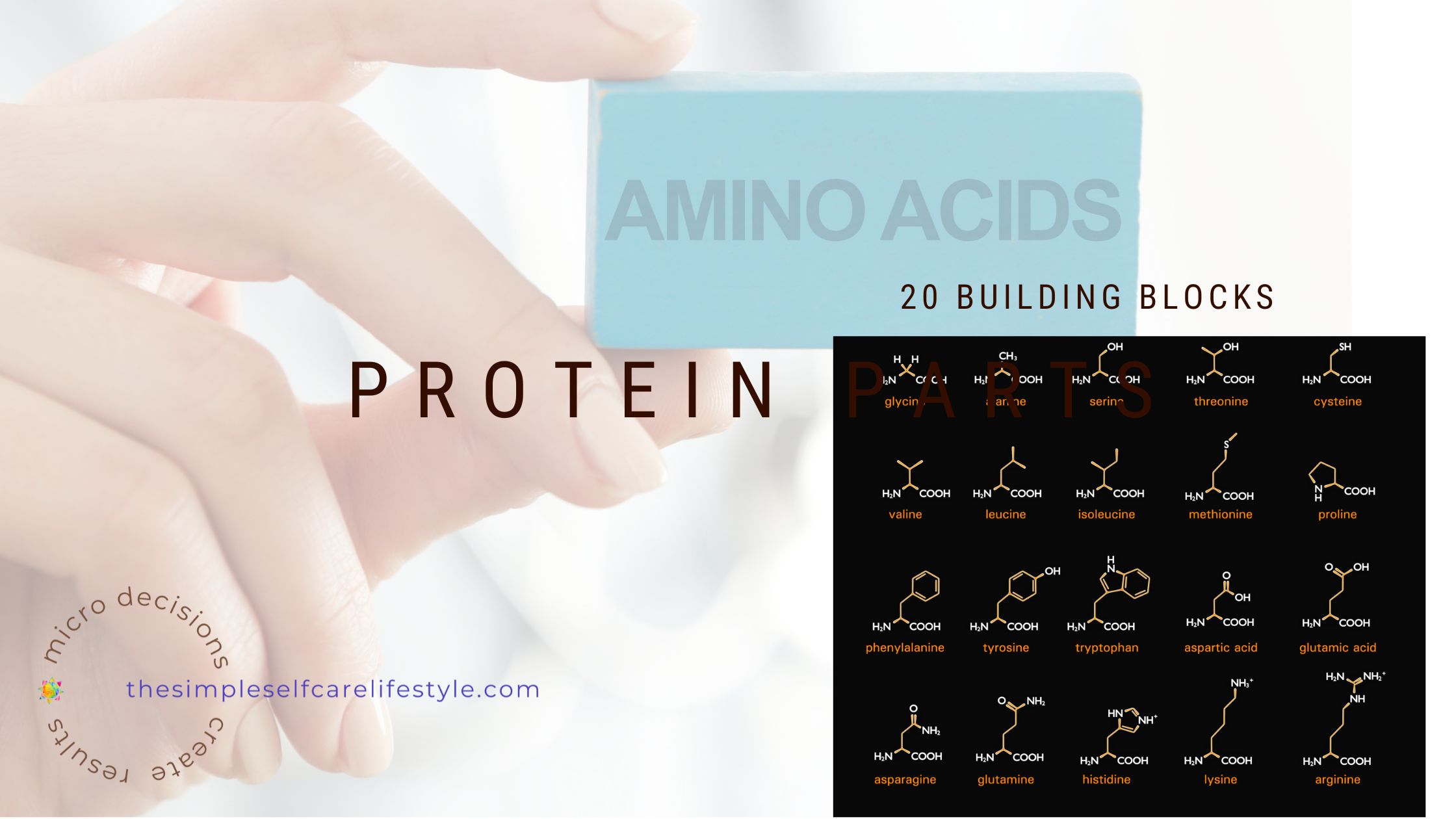
Protein’s Most Important Job
The most important job of the Protein we eat is its ability to provide our body with all the building blocks our cells need–
This includes building blocks we cannot make. We must consume them.
I KNEW this. I studied this. Yet 10 years into the wellness field and the negative messaging around complete proteins was so strong that I still had thoughts swirling around in my mind when I did my AMDR Protein calculations.
My body was literally falling apart, but I was worried about the increased risk of:
- Colon Cancer
- Breast Cancer
- Cancer in general
- Heart Disease
- Osteoporosis
I heard so much about meat causing all these bad things that I knew I needed answers to these concerns of mine to be able to shift my diet successfully.
The May 2019 study validates we have been and are continuing to be bombarded with the WRONG information when it comes to protein consumption:
QUOTE:
“…still in the media, clinical practice, and within academia that perpetuate certain risks associated with the protein content of balanced mixed diets of healthy adults. Common criticisms of greater protein intakes…include the potential for detrimental effects of Protein on bone, renal function, low-grade inflammation, cardio-metabolic disease, and cancer risk. These concerns are unfounded with regard to Protein in the diet.”
Let’s see what research now says about the top concerns. Starting with bones.
Will Increasing High-Quality Complete Protein (Meat) Hurt My Bones?
Does consuming a high-quality protein-emphasized diet increase my Risk of Osteoporosis?

“Although it was once thought that the acid-generating components of a high protein diet were detrimental to bone, an updated review of the literature shows greater protein intake is not harmful to bone. Additionally, further understanding of the mechanisms behind how Protein modifies bone metabolism and the interrelation with muscle function will provide future therapeutic targets in forestalling bone loss with aging.”(1) (bold, underline, and italic added)
So instead of causing bone loss, increased high-quality meat helps forestall bone loss with aging! Just the opposite of my concern.
Eating more high-quality Protein was protective to my bones, not harmful. Great! Now I know it forestalls bone loss!
Next:
Will it hurt Renal Function (Kidneys)?
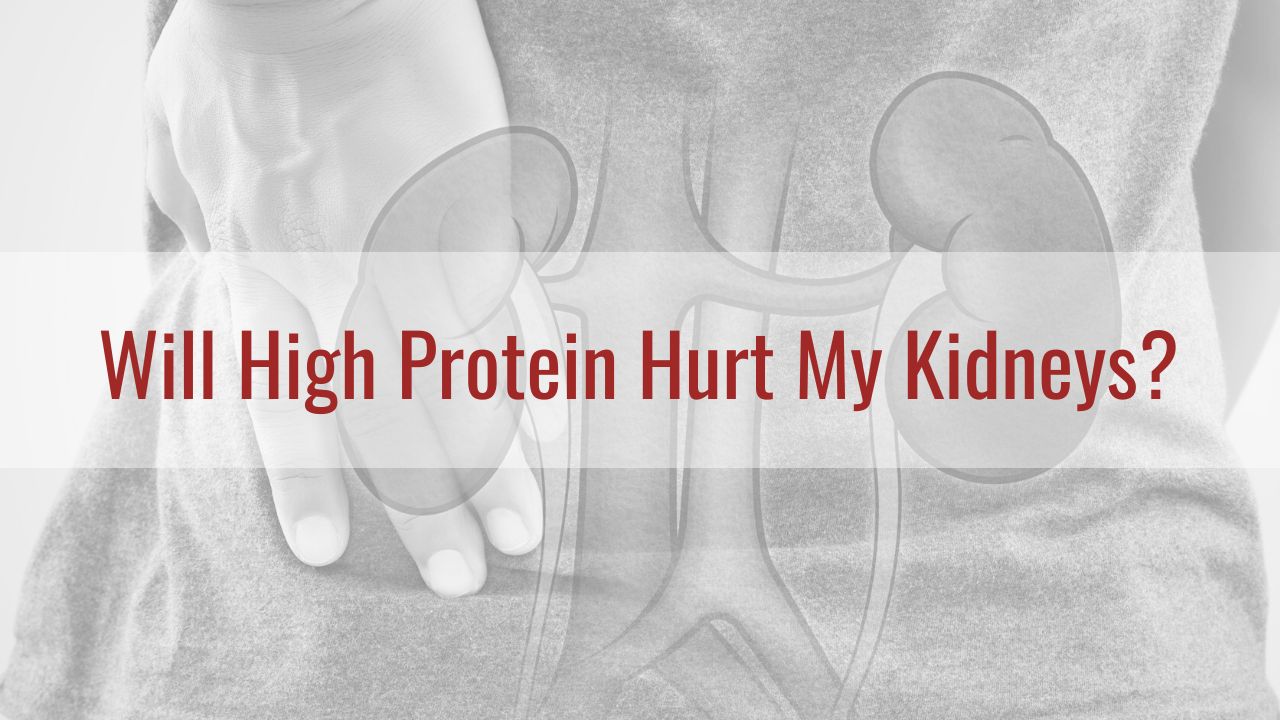
“Diets higher in animal and plant protein, independent of other dietary factors…do not impair Kidney function. They are associated with Cardio-metabolic benefits with no apparent impairment of kidney function.” (1) (bold and italic added)
Does High Protein Cause Inflammation? Joints, Cardiovascular issues? Aging problems?
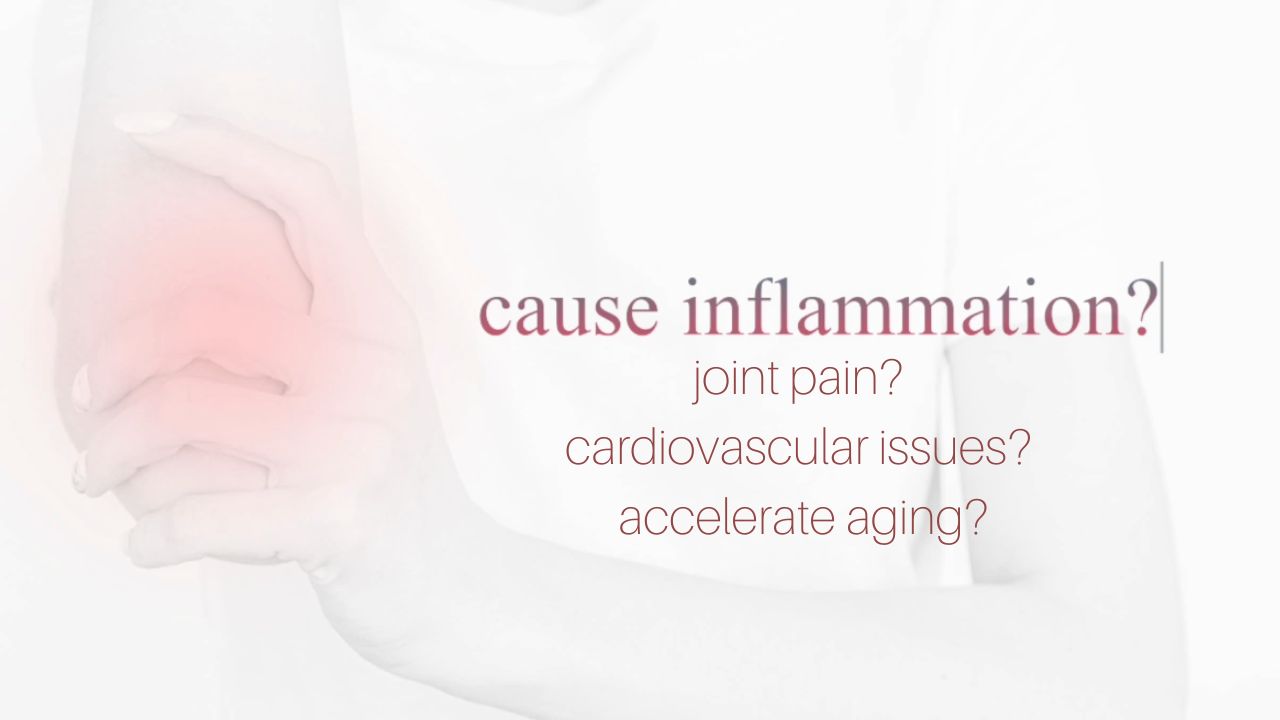
“Protein intake is inversely associated with changes in inflammation and oxidative stress score.” (1) (bold and italic added)
“Low-grade systematic, chronic Inflammation is thought to be a major characteristic of aging and may lead to an increase need for Protein to support anti-inflammatory processes.” (1) (bold and italic added)
“Eating protein…may therefore be important not just for maintenance of lean mass and physical function but also for counteracting inflammation.” (1) (bold and italic added)
“Several studies have observed that pro-inflammatory cytokines are inversely associated with muscle strength and physical performance, both of which have been positively associated with at least adequate levels of Protein intake.” (1) (bold and italic added)
Type and Quality of Proteins Matters

I want to re-emphasize that the Type and Quality of your complete proteins (Meat, Fish, Eggs) Matters.
We want to focus on increasing the highest-quality we can. Avoid processed meats, smoked meats, bars, or powders as much as possible.
Now the most significant concern about Complete Protein I had 25 years ago.
What about Cancer? Colon? Breast?
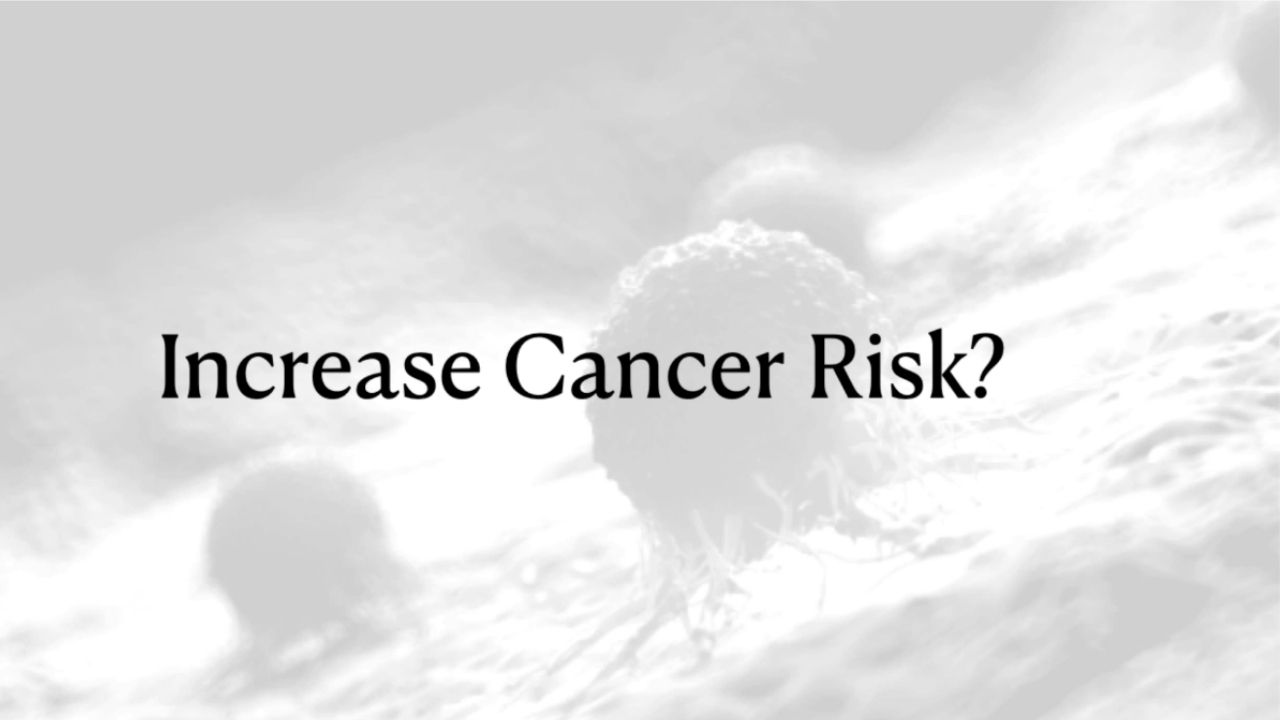
Having had multiple surgeries removing masses from all different parts of my body from my teens onward, the idea that I could possibly cause more growths was a big hurdle.
I was pleased to uncover that:
“meta-analyses show no link between overall dietary intake and incidence in colorectal or breast cancers. Higher protein diets may, however, exert a protective effect on post-diagnosis survival. A greater emphasis on dietary protein consumption in the context of overall nutrient-dense healthy food choices when considering relations to health and disease. As the aforementioned connections are greatly influenced by food item quality more than food macronutrient profile.” (1) (bold and italic added)
NO LINK to Cancer, but exerts a protective effect on post-diagnosis survival!
The Positive Impact of High-Quality Protein on my health-wellness-fitness has proven to be correct.
Personal antidote: Now approaching my 7th decade, the past two and half decades of making One Self Care Micro Decision after another revolved around the 1 Self Care FOCUS of knowing and providing my cells with what they need, including more and more high-quality Protein as I age, has resulted in zero additional cancer growths.
Healing, continued health, wellness, and fitness as well. I went from needing 6 meds in my 30’s to none coming up on 30 years now. What a difference complete protein has made.
Weight and Metabolism?

“In addition to the dietary Protein and skeletal muscle considerations, the protein leverage hypothesis suggests that protein under-consumption increases appetite drive in an effort to ensure sufficient amino acid intake.” (1) (bold, underline and italic added)
For more on that, see Part 1 and Part 2 in this Protein series and then How the Body Uses Body Fat Part 1 and Part 2.
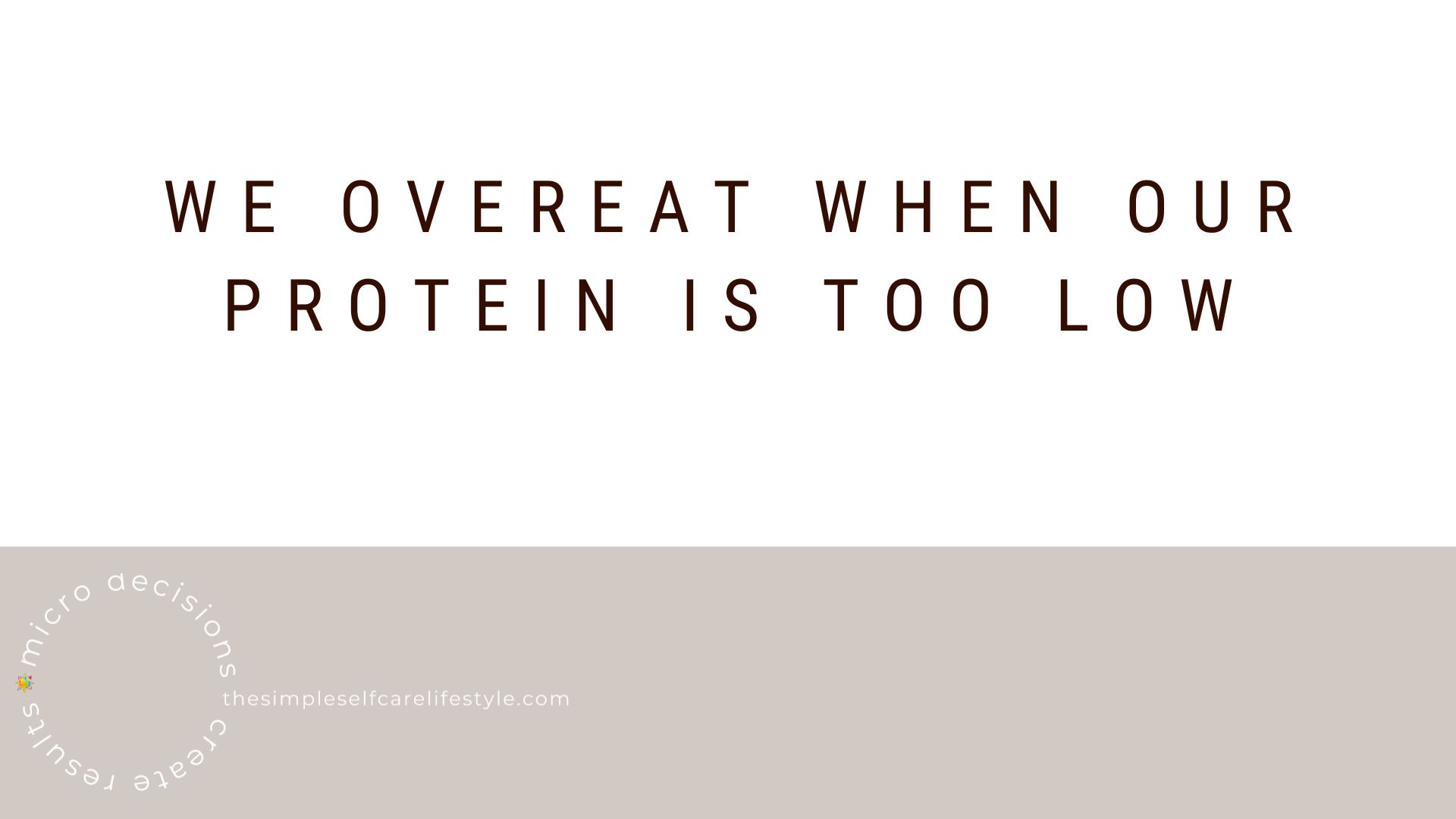
“The unfortunate effect of this response in the absence of increased protein intake is excess energy consumption” (1) (bold and italic added)
We overeat. When our Protein consumption is too low,
We feel hungrier and have the drive to eat more when our meat-fish-egg consumption.
The Bottomline: We Should be Eating More High-Quality Protein.

When the fear and hesitation were replaced by the awe of all the positive benefits protein provides to the body, I was excited to figure out the optimal amount I should be consuming.
The AMDR Equation:
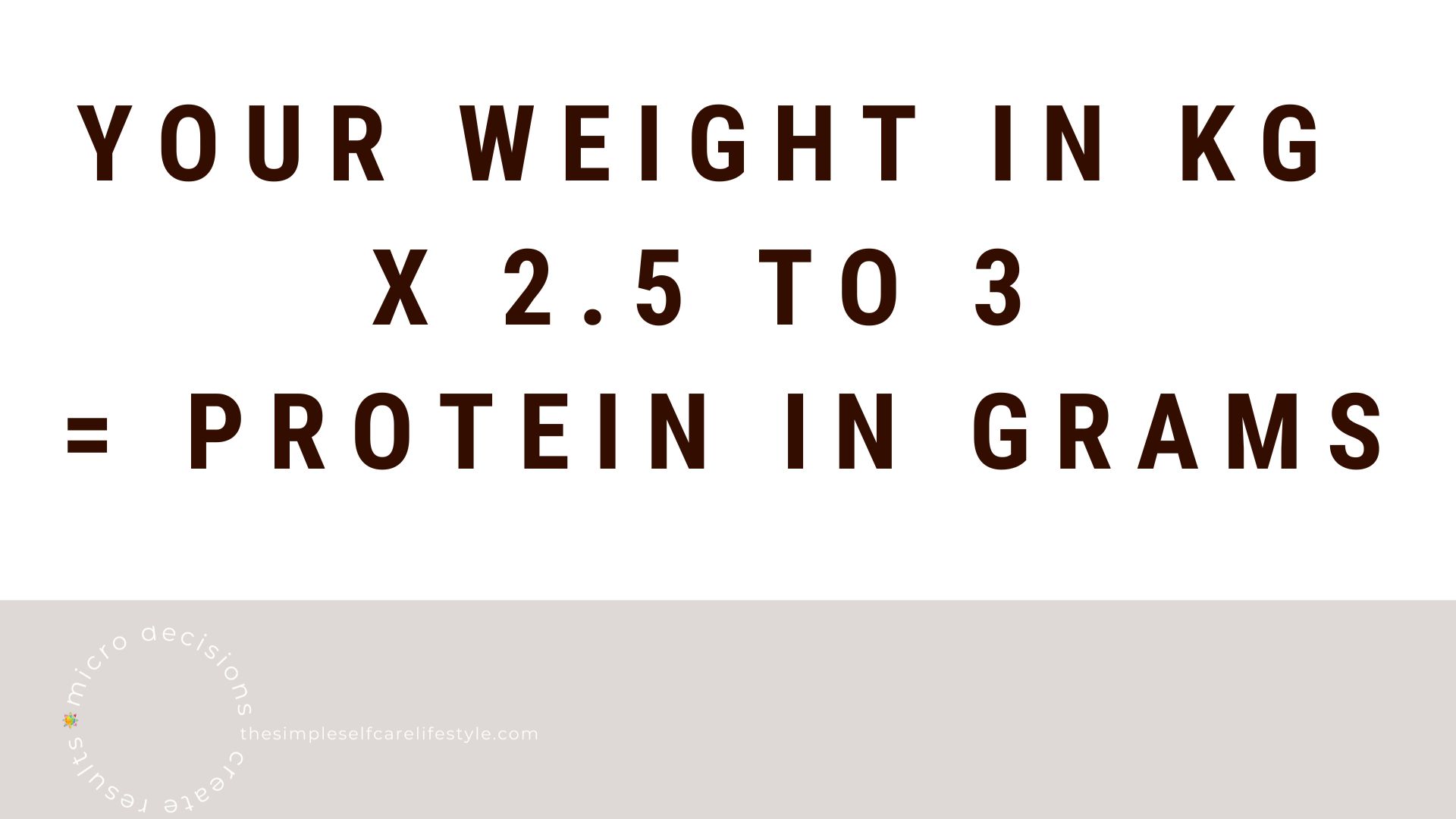
I did the Math for you, converting kg to pounds, and made a chart in 10lb/5kg increments
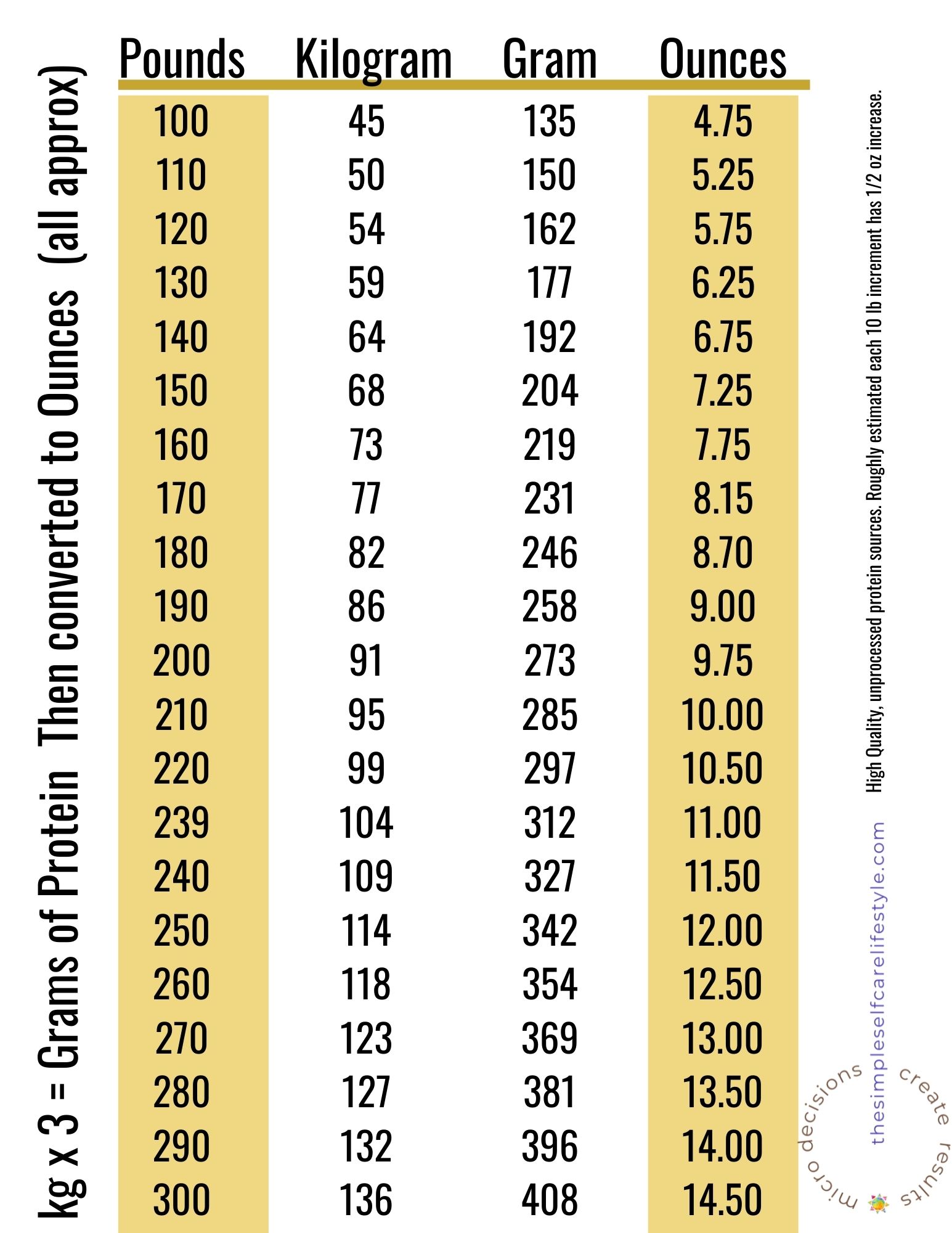
This is NOT the RDA.
The RDA reflects the MINIMUM amount of required to meet the indispensable amino acid requirements.
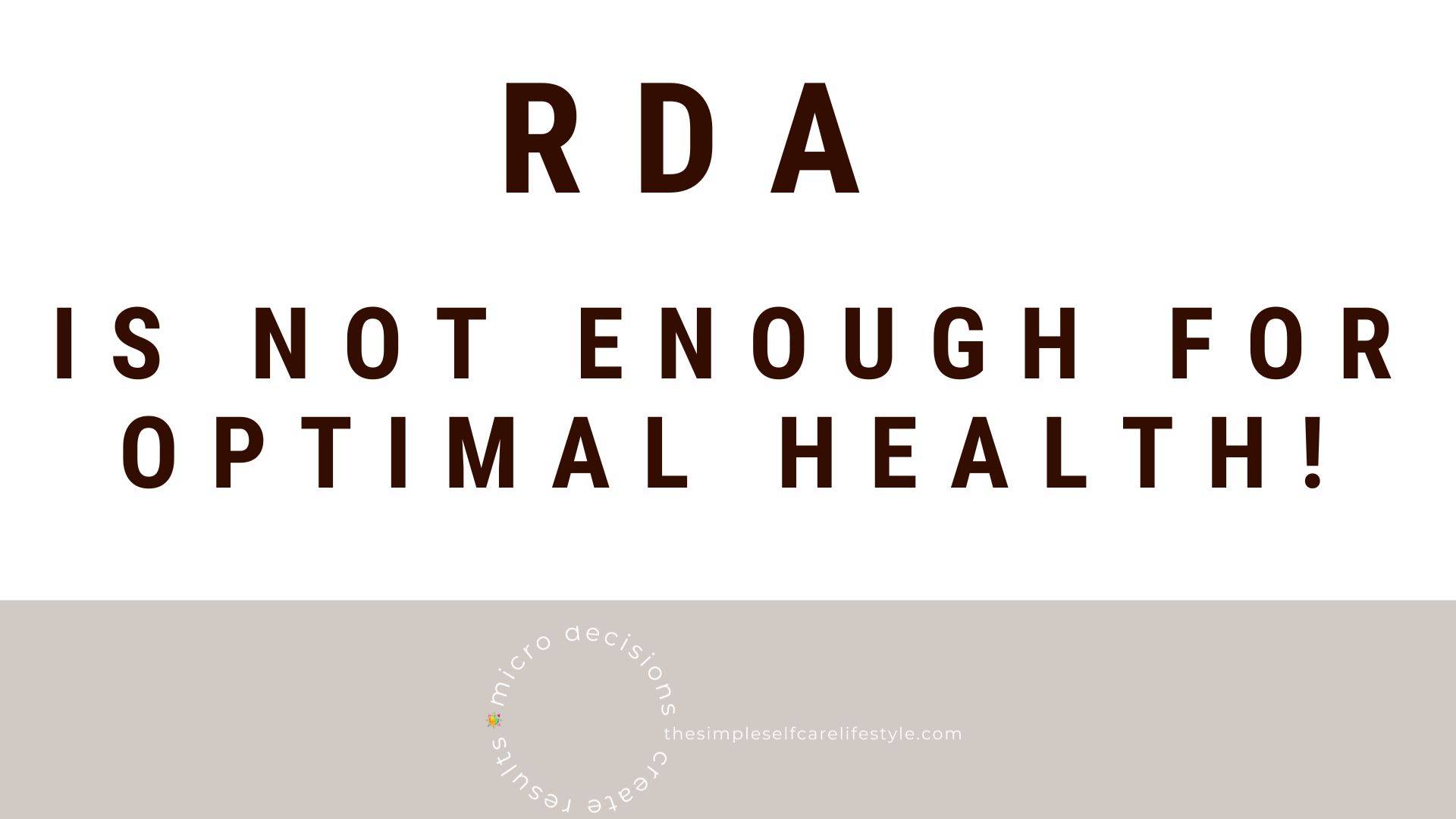
“If the adult population, as a whole, consumed Protein at approximately 1.6g/kg/d as advocated in a recent review, it would represent only 17-19% of total energy intake.” (1) (bold added)
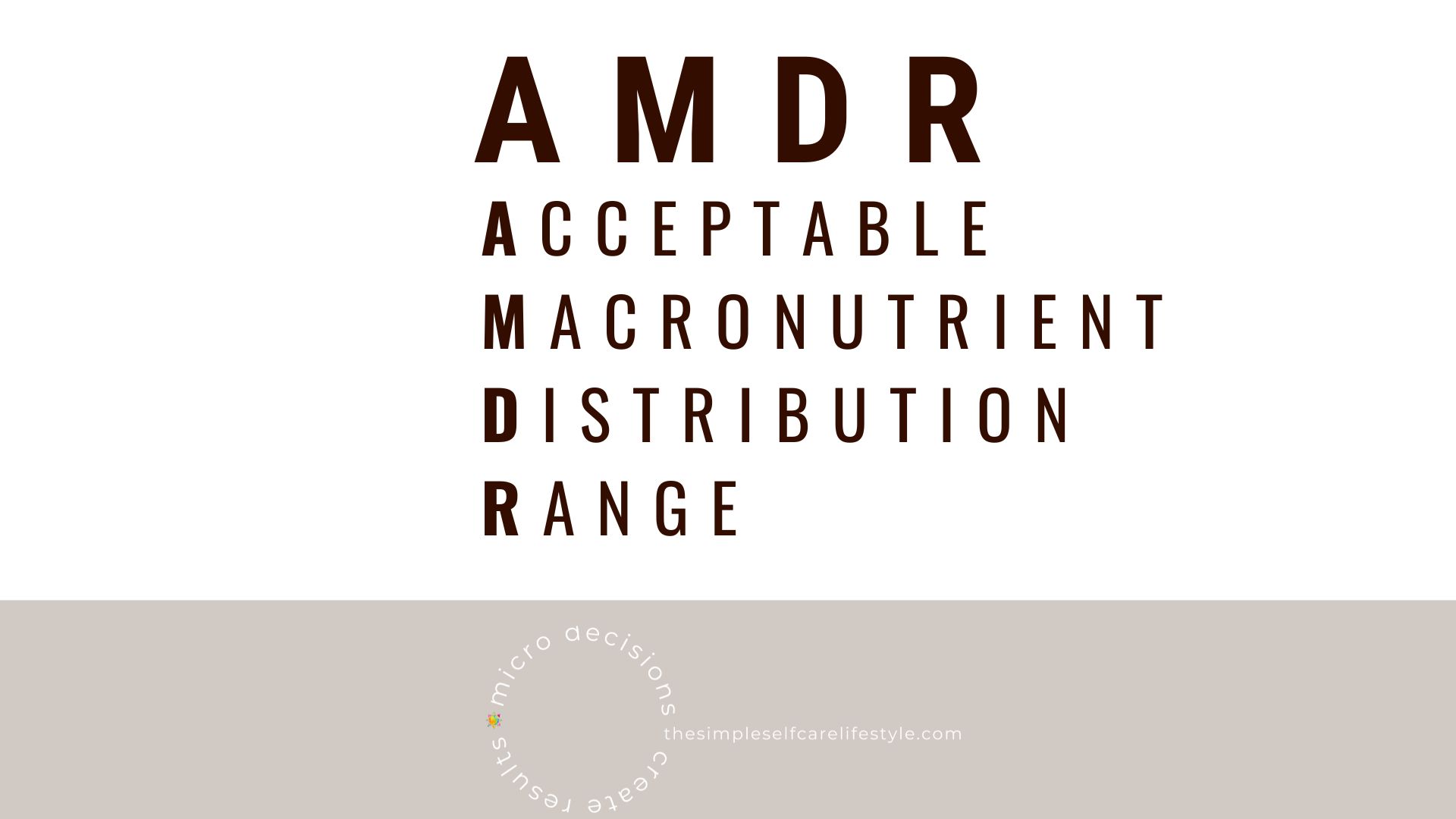
“Even increasing to 2.5 to 3g/kg/d would still fall in the 25-35% of total energy from protein suggested by the AMDR.”(1)(bold added)
The AMDR is the Acceptable Macro-Nutrient Distribution Ranges
“This upper range 3g/kg/d would provide ample opportunity to optimize muscle health.” (1)(bold added)
That’s exactly what we are looking for-optimized muscle health.
“Optimized muscle health plays a central role in whole-body protein metabolism by serving as the principal reservoir for amino acids to maintain protein synthesis in vital tissues and organs…altered muscle metabolism plays a key role in the genesis, and therefore the prevention, of many pathologic conditions and chronic diseases.”(1) (bold and italic added)
3g/kg/d is what I used in the Equation.
The AMDR Equation Helps Find Ranges of Protein to minimally Provide, Optimize and Protect your body.
It is what I used to create the Conversion Charts for you.
The charts can be used as a SIMPLE Tool to get you started when it comes to knowing where to aim for daily protein intake. Athletes, Pregnant, Older Adults, and High metabolic systems will need more. This is a Tool to get you started on the minimum to aim for.
A brief description of the three charts:
- 1 – The Equation with a few examples of Complete and Incomplete Protein Sources
- 2 – The Conversion Chart where I did the math for you.
- 3 – An Eye Balling Visual of the approximate size of different complete Proteins.
The eyeballing tool is a guesstimate sheet. You can cut out and use the visual to approximate the amount of Protein. I did just that initially.
Whatever SIMPLIFIES the process enough to make it workable for YOU.
1.
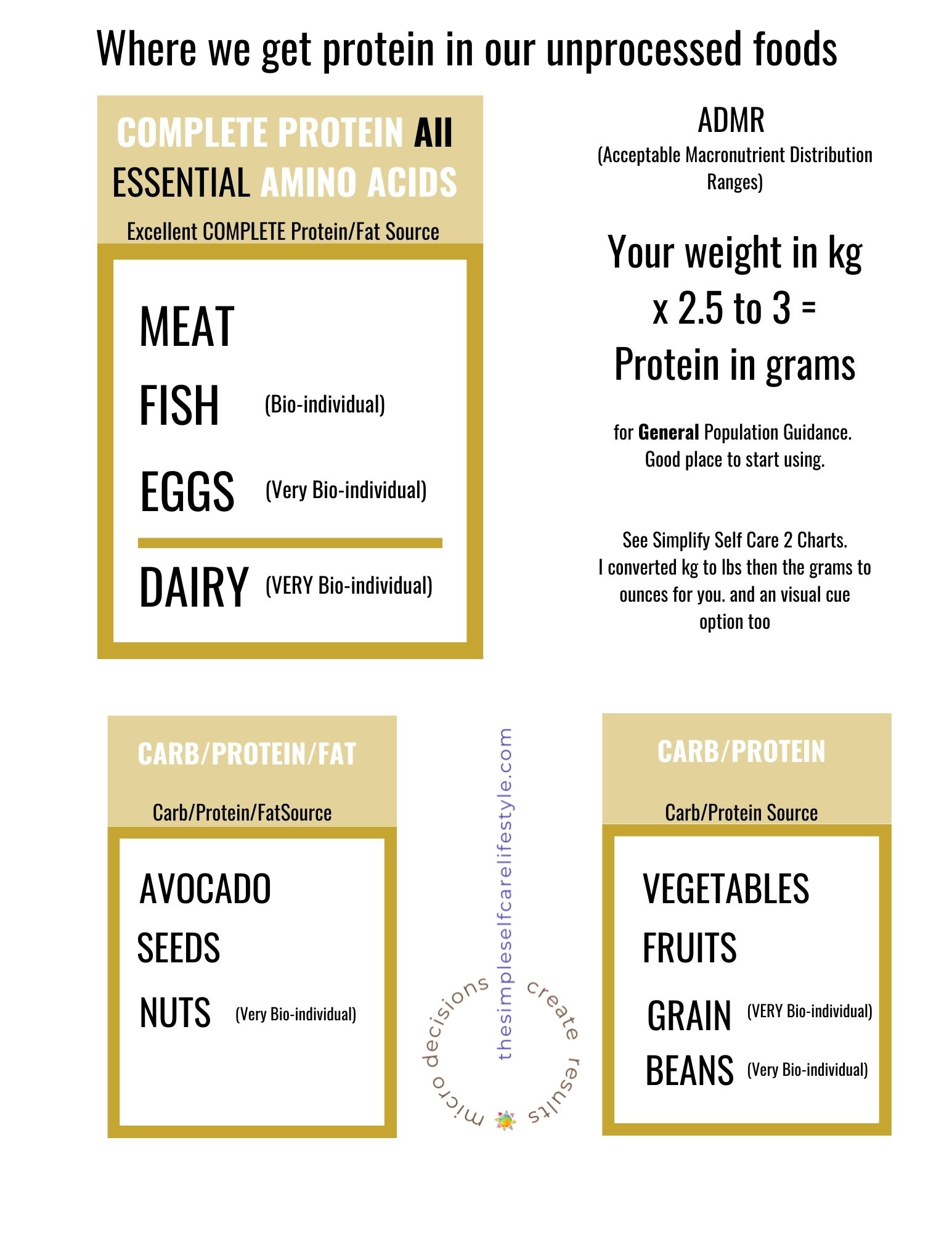
2.

3.

Download




I hope you find the research, references, and PDFs helpful!
Thank you, Tina, for emailing me your great question! I hope you and everyone find the research, the references, the reasoning, and the tool (charts) helpful in clarifying and simplifying how much high-quality Protein to aim for each day and the amount that works for you.
My aim is to place everything you need in your hands when it comes to the inclusion of High-Quality Protein so you can:
- use it, think through the facts
- discuss with your practitioner and
- advocate for your well-being



References/Resources I’ve put together for you are below.
The Simple Self Care Lifestyle
THe simple self care lifestyle
Simplify
self care
Post categories

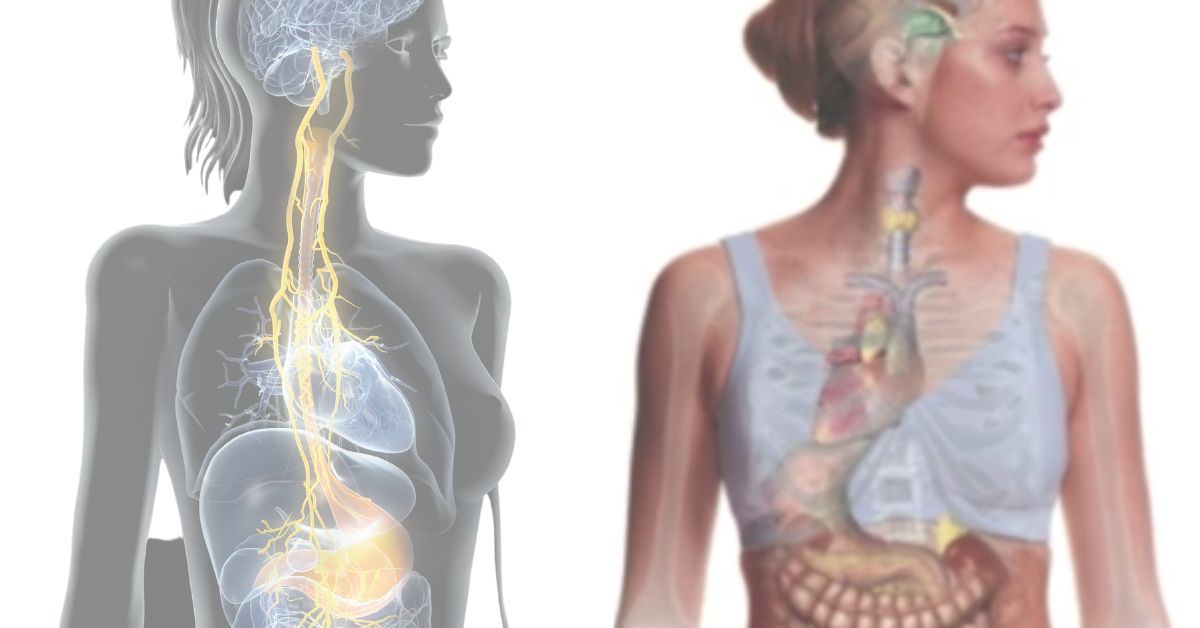




SHOP Products
Personal Products
Healthy Home
Quality Supplements
Things to Keep Handy
Quality Food Sources
Simple Self Care Programs

I’m glad you are here…
References/Resources
1. Carbone, John W, and Stefan M Pasiakos. “Dietary Protein and Muscle Mass: Translating Science to Application and Health Benefit.” Nutrients vol. 11,5 1136. 22 May. 2019, doi:10.3390/nu11051136





















